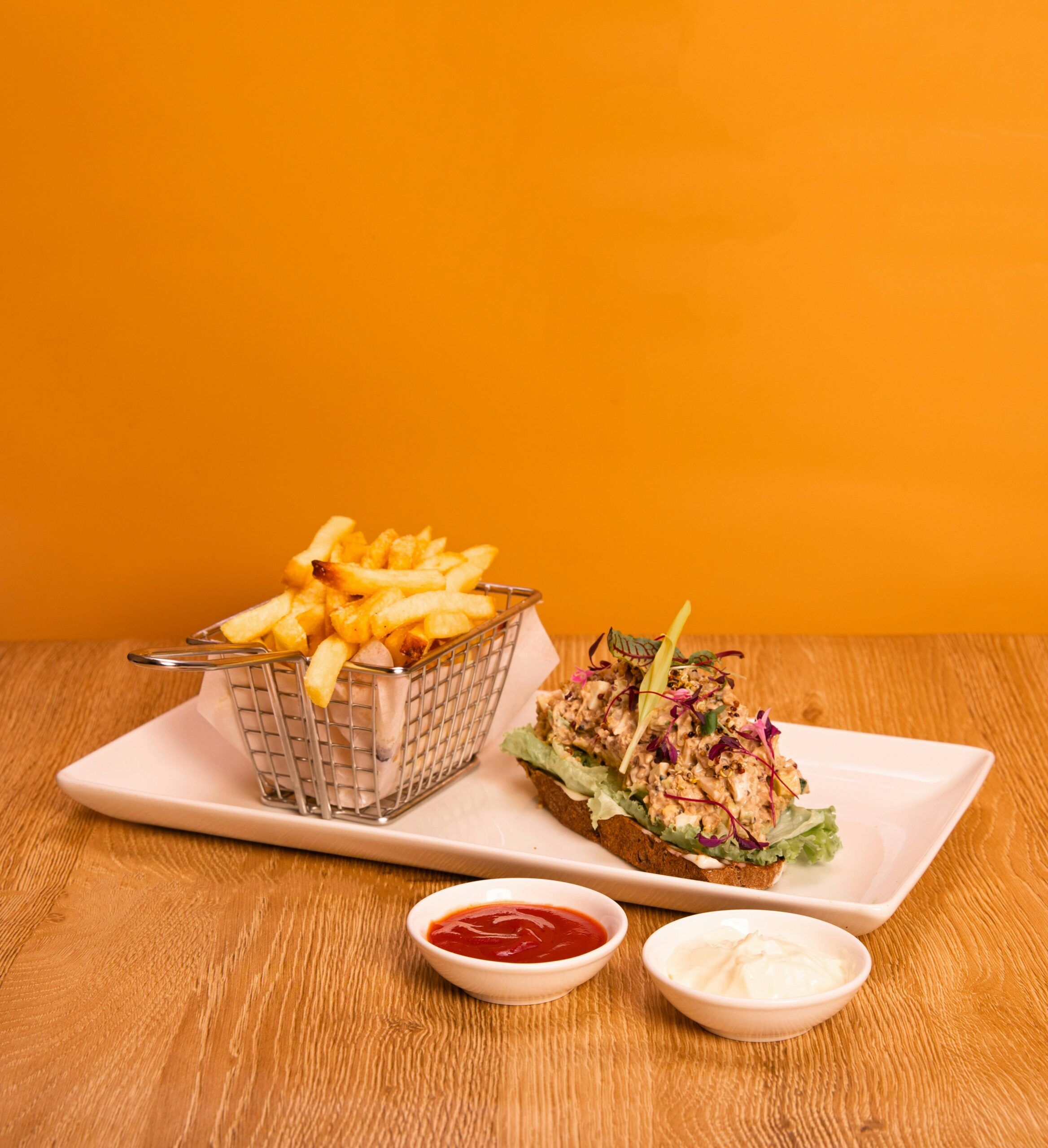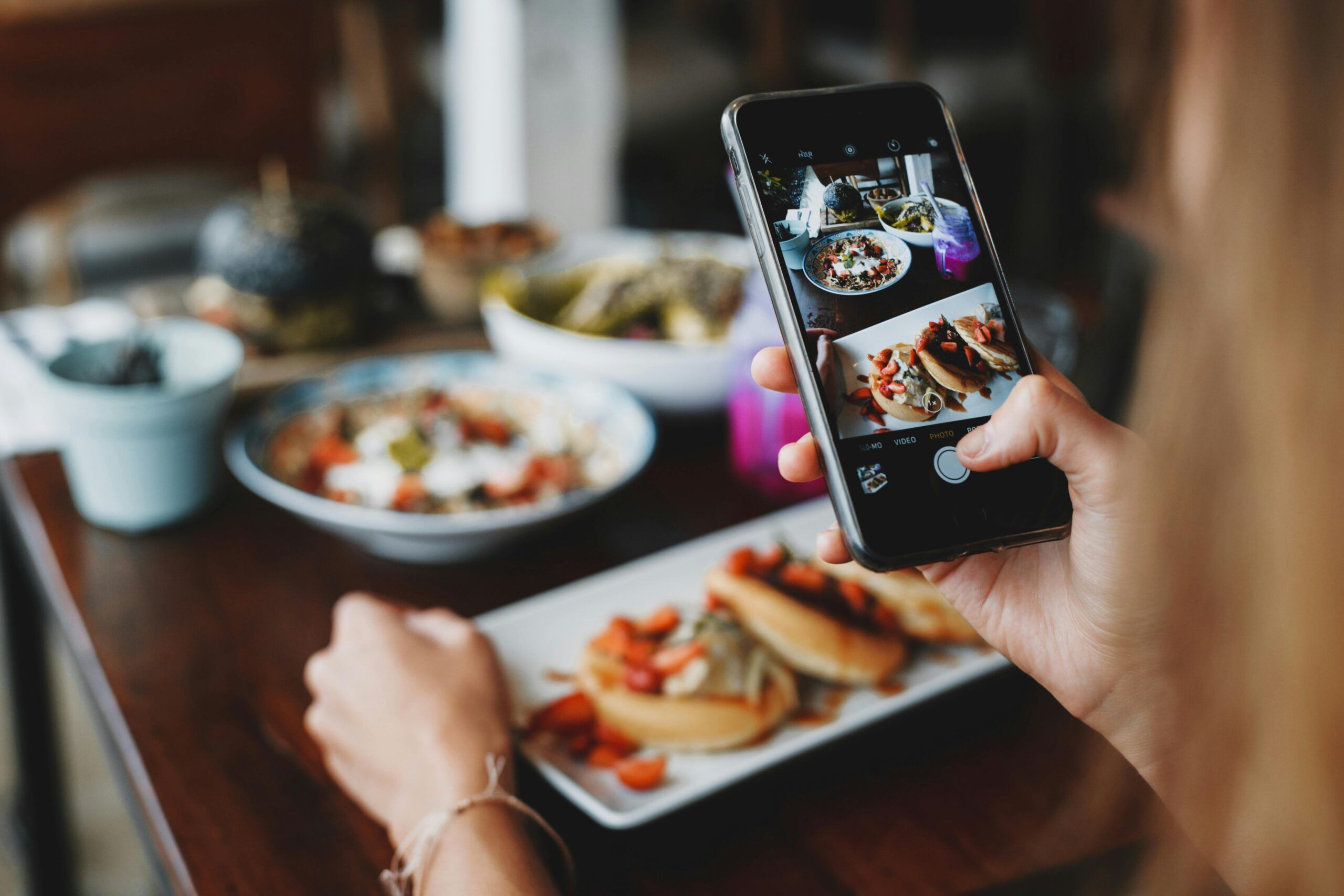- Questions to Ask Before Choosing Your Restaurant Website Builder
- Essential Features Every Restaurant Website Builder Needs
- Restaurant Website Builder #1 – Orders.co – Revolutionizing Restaurant Websites with AI
- Restaurant Website Builder #2 – BentoBox – Crafting Beautiful Online Experiences
- Restaurant Website Builder #3 – Squarespace – Sleek, Professional Websites Made Easy
- Restaurant Website Builder N 4 – Wix – Full Creative Control for the Design-Obsessed
- Restaurant Website Builder N 5 – GoDaddy – Quick, Simple, and Affordable
- Choosing the Right Website Builder for Your Restaurant’s Success
- Final Thoughts
- FAQs
Key Takeaways
- Choose the right builder based on your restaurant’s goals (online orders, reservations, or showcasing ambiance).
- Orders.co is perfect for growing direct sales through AI-powered website creation and seamless menu management.
- BentoBox excels at creating custom, high-end designs for dine-in restaurants that need to reflect their brand.
- Squarespace offers simple, sleek designs for restaurants needing a polished, professional site without the complexity.
- Wix provides full creative control for design-obsessed restaurateurs who want to customize every detail.
- GoDaddy is an affordable and fast option for small restaurants looking to get online quickly with basic functionality.
- Prioritize features such as mobile optimization, online ordering, and customer engagement tools when choosing your builder.
In the restaurant business, your online presence is as important as your food.
In fact, one of the most valuable functions your restaurant’s website can serve is handling online orders directly through your own platform.
Whether you’re looking to:
- Simplify the ordering process for customers
- Boost revenue by increasing direct sales
- Create a seamless experience from menu browsing to checkout
A strong online presence helps you achieve all these goals.
But here’s the key: Not all restaurant website builders are the same. Some are tailored for driving online orders, while others focus on design or ease of use.
In this guide, we’ll explore the five best restaurant website builders to ensure your online presence does what it should: grow your business.
Read Also: The Ultimate Guide to Restaurant Reputation Management: Nurturing Your Brand Online.
Questions to Ask Before Choosing Your Restaurant Website Builder
Choosing the right website builder for your restaurant is a big decision, and it’s not just about picking the flashiest design.
It’s about understanding what will actually move the needle for your business.
Here are some key questions to guide you:
What are your primary goals?
- Are you focused on driving direct online orders?
- Do you need a platform to showcase the ambiance of your space?
- Is making reservations simple and seamless a top priority?
Understanding your goals first will narrow down your options quickly.
How much customization do you need?
- Do you want your website to have a unique design that reflects your restaurant’s personality?
- Or is functionality—like smooth ordering and easy navigation—more important to you?
If you’re running a high-end, vibe-driven restaurant, customization might be key. If you’re all about speed and efficiency, simpler platforms may do the trick.
Do you need built-in marketing tools or third-party integrations?
- Do you want to manage email and SMS marketing directly from your website?
- How important is it to integrate with delivery services, reservation systems, or loyalty programs?
Some builders have built-in features, while others work well with the tools you already use.
What is your budget?
- Be mindful of both the setup costs and the ongoing monthly fees.
- Remember that some platforms charge per transaction or offer tiered plans based on features.
How tech-savvy are you (or your team)?
- Do you want a DIY platform where you can control everything yourself?
Or would you prefer a done-for-you solution where the heavy lifting is done by someone else?

Essential Features Every Restaurant Website Builder Needs
When building a website for your restaurant, there are certain must-have features that will make it both functional and engaging for your customers.
Let’s walk through the essentials you’ll want to consider:
Visually Appealing Design
First impressions matter, and your website should reflect your restaurant’s unique vibe. A clean, eye-catching design draws customers in and makes them feel at home before they even step inside.
Source (Created with Orders.co)
Mobile Responsiveness
Most of your customers will visit your site from their phones. Make sure your website looks just as good and functions smoothly on mobile as it does on a desktop.
User-Friendly Navigation
Your website should be easy to navigate. Menus, hours, contact information—these should all be easy to find within seconds.
Menu Presentation
Showcase your food! High-quality images, clear descriptions, and pricing are crucial. Make it tempting and easy to browse.
Created with Orders.co
Online Reservations and Ordering
Whether they want to book a table or place a quick takeout order, having these options available directly on your site can increase convenience and sales.
Contact Information and Location
Your address, phone number, and hours of operation should be front and center. Include a map for easy directions.
Social Proof
Display customer reviews, testimonials, and media mentions to build trust and show people why they should choose you.
Specials and Events
Highlight your current promotions, happy hours, or upcoming events to keep customers excited and informed.
About Us Section
Share your story! Customers love connecting with the heart behind the business. Let them know what makes your restaurant unique.
Newsletter Signup
Build a loyal customer base by encouraging visitors to sign up for your newsletter. Offer exclusive deals or updates as an incentive.
Secure Online Transactions
If you’re offering online orders or gift card purchases, make sure transactions are secure to protect your customers’ data.
Read Also:
- Building a Stellar Online Presence: Key Features for Your Restaurant’s Website
- AI-Powered Restaurant Website Builders: Transforming the Culinary Web
- Guide to Setting Up a Restaurant Ordering Website for Local Businesses
The 5 Best Restaurant Website Builders
Whether you want to boost online orders, showcase your restaurant’s unique vibe, or boost reservations, the right tool makes all the difference.
Here are the 5 best restaurant website builders to help you find the perfect fit for your needs.
Restaurant Website Builder #1 – Orders.co – Revolutionizing Restaurant Websites with AI
Why It Stands Out: With Orders.co, you can focus on serving great food while the AI handles the tech for you. In under 60 seconds, you’ll have a fully functional, commission-free ordering site that’s not just pretty but powerful, helping you connect directly with your customers and grow online sales.
Key Strengths:
- AI-Powered Speed: You don’t need to be tech-savvy. Orders.co takes your existing menus and business details and generates a beautiful, functional site in less than 60 seconds.
- Seamless Online Ordering: Your customers will enjoy a quick and smooth checkout that is fully integrated with your payment system—no third-party hassle.
- Instant Menu Updates: Tired of manually updating your menu across platforms? This tool handles that for you, syncing changes instantly across all channels.
- Mobile-Optimized: Your site will be just as smooth and fast on mobile as it is on the desktop because we know that’s where many of your customers are placing orders.
- Loyalty Made Easy: Orders.co’s built-in AI helps create personalized offers and loyalty programs to keep your customers coming back for more.
- Guest Feedback Monitoring: Capture valuable customer feedback directly from your custom website and encourage satisfied guests to leave reviews on Google, boosting your reputation.
- SEO-Friendly: Orders.co helps you rank higher on search engines with built-in SEO tools, making sure your restaurant gets noticed online.
Perfect For: If your restaurant thrives on takeout or quick-service orders and you’re looking to scale direct online sales while cutting out the middleman, this is the platform for you.
Takeaway: Fast setup, smart tools, and easy operation—this is the go-to choice for restaurant owners ready to streamline their tech and boost their bottom line.
How to Build Your Restaurant Website with Orders.co in 4 Simple Steps
1. Getting started with Orders.co is quick and effortless
Follow the link https://demo.orders.co/
2. Select Your Business
Next, Orders.co will help you identify your restaurant from a list of options based on your business information.
If your restaurant is already in the system, simply select the correct entry from the list.
Example business information:
- Name: Hakka Express (Austin)
- Address: 9313 Anderson Mill Road, Austin TX 78729
3. Verify Your Email
After selecting your business, it’s time to verify your email. Enter your email address, and you’ll receive a verification code. Input the code to confirm your email address and continue.
4. Your AI-Generated Website is Ready
Once your email is verified, Orders.co AI will generate your website, complete with menu integration and mobile optimization.
You’ll have the option to view the site immediately. Once you’ve reviewed your site and feel good about it, just schedule a demo to explore all the features. After that, you can quickly finalize your signup and start taking commission-free online orders!
Here is the end result:
Read Also: 7 Essential Reasons Why Your Restaurant Needs an Ordering Website
Restaurant Website Builder #2 – BentoBox – Crafting Beautiful Online Experiences
Why It Stands Out: BentoBox is the go-to platform for restaurants that want a website reflecting the same ambiance as their in-house dining experience. With a focus on stunning design, BentoBox offers tools like online reservations and event ticketing, making it a solid choice for dine-in-centric restaurants.
What to Watch For: Costs can quickly rise with the addition of premium features, so it’s important to consider your budget.
Perfect For: Upscale or dine-in restaurants that want a website as unique as their dining experience and need tools to manage reservations and events.
Takeaway: If your brand image is key and you want your website to reflect the luxurious or intimate experience of dining at your restaurant, BentoBox excels at creating a high-end, customized online presence. Keep in mind that premium features can add to your overall investment, so plan accordingly.
Restaurant Website Builder #3 – Squarespace – Sleek, Professional Websites Made Easy
Why It Stands Out: Squarespace is perfect for restaurants seeking a polished, minimalist look without getting bogged down by complex features.
Its templates offer an easy-to-use editor, making it a breeze for restaurant owners who want a visually appealing site with minimal effort.
Key Strengths:
- Easy-to-Use Editor: Drag-and-drop tools allow you to build and update your website without any coding knowledge.
- Affordable: One of the more budget-friendly options, ideal for restaurants that just need a simple web presence.
What to Watch For: Squarespace lacks restaurant-specific features like online ordering or reservation management, which may be a drawback if you’re looking for those capabilities.
Perfect For: Restaurants that want a simple, visually attractive website to display basic information like their menu, hours, and location but aren’t focused on driving online orders or managing reservations digitally.
Takeaway: Squarespace is a solid choice for restaurants that need a clean, no-fuss website.
With Squarespace, getting started is easy. Once you begin building your site, you’ll be prompted with a simple question: “What’s your site about?” This helps the platform guide your setup experience by offering tailored suggestions and templates
You can let AI build your site based on your needs or browse templates to choose one yourself.
Squarespace currently offers 15 restaurant-specific templates to choose from.
Restaurant Website Builder N 4 – Wix – Full Creative Control for the Design-Obsessed
Why It Stands Out: Wix gives you the freedom to design your restaurant website exactly how you envision it, thanks to its highly customizable drag-and-drop editor. It’s perfect for owners who want their site to be as unique as their menu.
Key Strengths:
- Complete Customization: Wix lets you control every aspect of your site’s design, from layout to style, without restrictions.
- App Marketplace: You can add restaurant-specific features, such as online ordering, reservations, and more, through its app marketplace.
- No Coding Required: You don’t need to be a developer to build a professional-looking site—Wix’s intuitive interface makes advanced customization simple.
What to Watch For: With so many features, it can feel overwhelming, and some essential tools may require purchasing extra apps.
Takeaway: Just be ready to invest some time learning the platform and managing the many available features.
Restaurant Website Builder N 5 – GoDaddy – Quick, Simple, and Affordable
Why It Stands Out: GoDaddy focuses on ease and affordability, making it an excellent option for small restaurants that need to establish an online presence fast without diving deep into customization.
Key Strengths:
- Fast Setup: GoDaddy’s builder is one of the quickest ways to get a website up and running with minimal effort.
- Built-In Marketing Tools: Includes basic SEO and email marketing tools to help increase your website’s visibility.
What to Watch For: Customization options and restaurant-specific features are limited compared to more advanced platforms.
Perfect For: Small, budget-conscious restaurants that need a simple, functional website without complex features.
Choosing the Right Website Builder for Your Restaurant’s Success
Here’s a comparison of the top five restaurant website builders to help guide you:
| Website Builder | Best For | Key Strengths | Customization | Pricing |
|---|---|---|---|---|
| Orders.co | Restaurants prioritizing direct online orders and guest feedback | Commission-free orders, AI-powered setup, real-time menu updates, built-in guest feedback monitoring | Limited but optimized for speed and performance | Mid-range, ROI-focused |
| BentoBox | Upscale, dine-in restaurants | Custom design, reservations, brand building | High customization | Premium pricing, add-ons |
| Squarespace | Clean, professional brochure-style sites | Beautiful templates, ease of use | Moderate customization | Affordable |
| Wix | Restaurants with creative, design-focused needs | Full control, app marketplace | High customization | Flexible pricing based on needs |
| GoDaddy | Small, budget-conscious restaurants | Quick setup, built-in marketing tools | Low customization | Budget-friendly |
Final Thoughts
When it comes to finding the right website builder, each platform brings its own strengths to the table:
- BentoBox is perfect for upscale restaurants that need a custom-designed site to match their in-house experience.
- Squarespace is a great choice for those looking for sleek, minimalist designs.
- Wix offers complete control for those who want to customize every detail.
- GoDaddy is the go-to for budget-conscious restaurants needing a quick and affordable solution.
But when it comes to Orders.co, you’re getting more than just a website builder. It’s an all-in-one restaurant growth platform that empowers you to take full control of your online presence and revenue.
AI-Powered Website Builder
Orders.co stands out with its AI-driven restaurant website builder, generating a fully operational site in 60 seconds. It eliminates the hassle of setting up a direct ordering platform, so you can focus on running your restaurant and increasing sales.
Menu Management
Beyond just creating your website, Orders.co keeps your menus in sync across both your website and third-party platforms, ensuring consistency and saving you countless hours of manual updates.
Built-In Restaurant Marketing Tools
Orders.co goes further by offering built-in restaurant marketing tools. From tailored special offers to meaningful loyalty programs, Orders.co helps you stay connected with your customers in a way that feels personal and genuine.
Guest Feedback Monitoring
Orders.co also provides a guest feedback monitoring feature, allowing you to collect feedback directly from your own website. This helps you gather real-time insights into customer satisfaction, address any issues promptly, and encourage positive reviews on platforms like Google.
Maximize Revenue with Direct Ordering
With Orders.co, you can take control of your guest experience through a commission-free online ordering and delivery platform.
This means:
- Direct Ordering
- Exclusive Menus
- AI Marketing & Loyalty Programs
Real Client Success
For example, Slash Pizza saw a 33% sales increase in just the first month using Orders.co’s 3rd Party Delivery Integration and Commission-Free Website with Flex Delivery.
If you’re looking for a solution that will not only get your website online but also help you grow your sales, improve operations, and reward your customers, Orders.co is the ultimate choice.
Schedule a free demo today and see how Orders.co can transform your restaurant’s digital presence!
FAQs
What makes Orders.co one of the best restaurant website builders?
Orders.co is an all-in-one platform that focuses on driving direct online orders. Its AI-powered builder generates a fully functional website under 60 seconds, seamlessly integrating menu management and customer engagement tools to help grow your business.
Is the website built with Orders.co commission-free?
Yes, Orders.co enables restaurants to take direct online orders without paying commission fees. You keep 100% of the profits from each order placed through your website.
How quickly can I create a restaurant website with Orders.co?
You can complete restaurant website creation in under 60 seconds using Orders.co’s AI-powered platform. It’s designed for speed and efficiency, allowing you to focus on running your restaurant.
What are the key features of Orders.co’s restaurant website templates?
Orders.co offers restaurant website templates optimized for online orders, menu updates, and mobile responsiveness. These templates are built for conversions, making it easy for customers to order directly from your website.
Does Orders.co offer guest feedback monitoring?
Yes, Orders.co includes a guest feedback monitoring feature, allowing you to collect real-time feedback from customers who place orders through your website. This helps you stay on top of customer satisfaction and make improvements based on their input.
Can Orders.co handle online orders?
Yes, Orders.co specializes in online ordering. It streamlines the ordering process and ensures your website is equipped to handle direct orders.
How does Orders.co help with managing my restaurant’s menu online?
Orders.co syncs your menu across all platforms, ensuring that updates are instantly reflected on your site and third-party platforms, saving you time and effort.
Does Orders.co offer built-in marketing tools?
Yes, Orders.co comes with built-in tools for customer engagement, including loyalty programs and personalized offers to encourage repeat orders and boost sales.
Is Orders.co easy to use for restaurant owners with no technical skills?
Absolutely. Orders.co’s platform is designed to be intuitive, requiring no coding or technical expertise, making building a restaurant website accessible for any restaurant owner.



